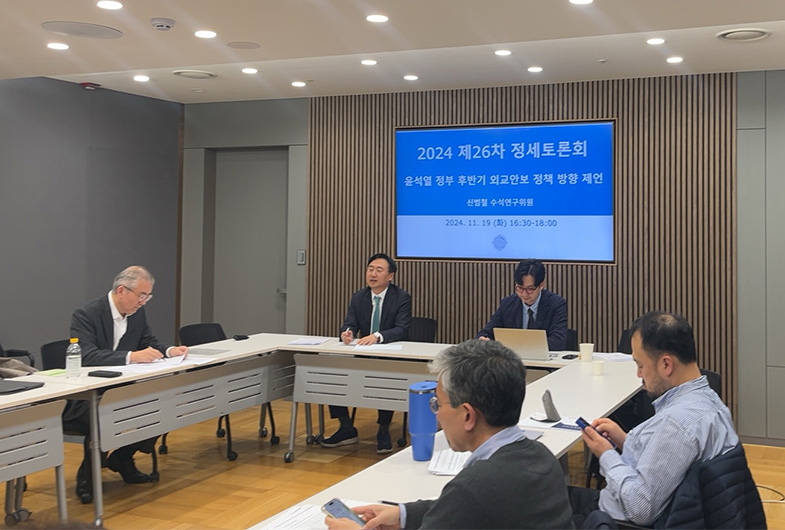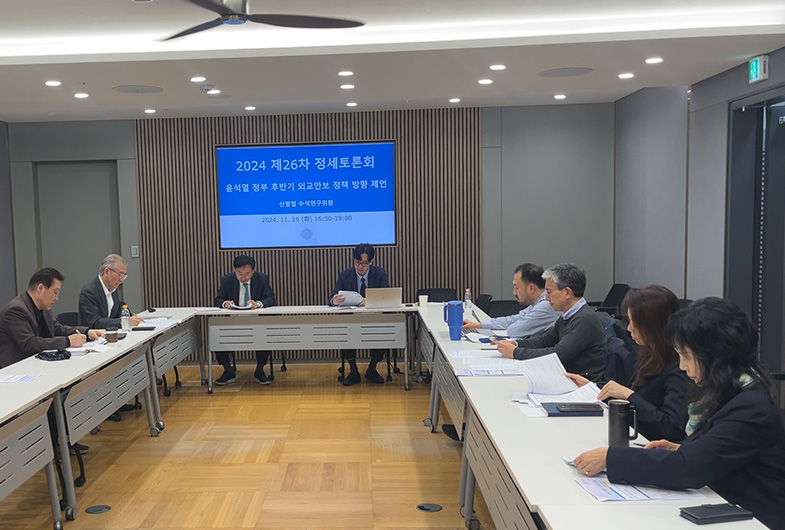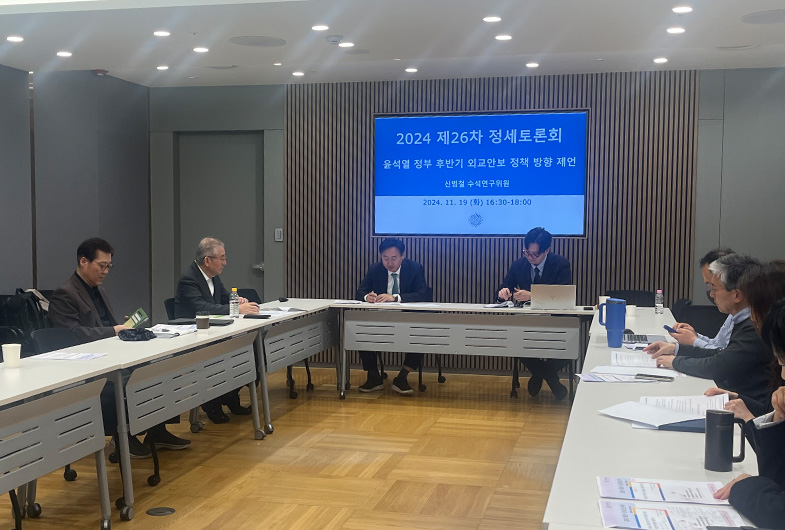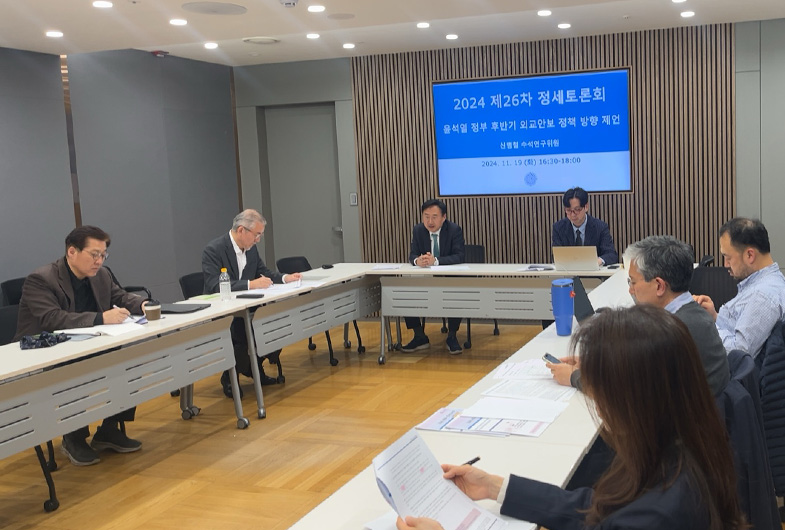On November 19th, Principal Fellow Beom-Cheol Shin presented "Foreign and Security Policy Direction for the Second Half of the Yoon Administration" at the 26th Colloquium.
The discussion was moderated by Sung-won Lee, Director of the Center for Security Strategy.
On November 10, the Yoon Suk-yeol administration reached its halfway point in office. Since taking power, the administration has achieved success in various areas, including strengthening the ROK-U.S. alliance, enhancing trilateral security cooperation between South Korea, the U.S., and Japan, and advancing economic security policies.
At the time of the Yoon administration's inauguration, the severity of North Korea's nuclear and missile threats was a pressing issue. Many began to perceive a weakening of the ROK-U.S. alliance due to controversies such as the "three no's and one yes" policy and the reduction of joint military drills. This led to calls for the normalization of South Korea-Japan relations, as concerns about China, supply chain issues, and security risks grew.
Particularly with the election of Donald Trump and increasing uncertainty in international relations, there were expectations that the U.S. would minimize its overseas military and economic engagements, with a greater focus on alliance-based policies. This created concerns about increased pressure on issues such as the U.S. military presence in South Korea and North Korea. After the outbreak of the war in Ukraine, the strengthening of North Korean cooperation became evident, and the possibility of North Korean troops being deployed to Ukraine became a reality. This closer relationship between North Korea and Russia is expected to have an impact on North Korea's foreign policy and further amplify regional uncertainties.
In the future, the situation on the Korean Peninsula will be shaped by the interaction of U.S.-China relations, U.S.-North Korea relations, and South Korea's responses, making it crucial to balance the strategic competition between the U.S. and China with the issues surrounding the Korean Peninsula. Furthermore, maintaining the current foreign and security policy stance while strengthening deterrence against North Korea and ensuring flexibility in response to changing circumstances is essential. The second half of President Yoon's term is expected to see significant changes in relations with the U.S. and surrounding countries, making it necessary to prepare for flexibility in policy implementation. While the first half focused on the ROK-U.S. alliance and global cooperation while addressing the North Korean issue, the second half will require a more proactive response to North Korea, exceeding expectations.
If U.S.-North Korea talks progress, South Korea must actively address its security concerns. During discussions with the U.S., South Korea should comprehensively address both the U.S.-North Korea negotiation process and issues related to the ROK-U.S. alliance, strengthening its position. Fortunately, former President Trump has more pressing issues at hand, separate from the Korean Peninsula, meaning there will be ample time for ROK-U.S. cooperation. South Korea should utilize this time to engage in in-depth discussions and consider appropriate negotiations.



